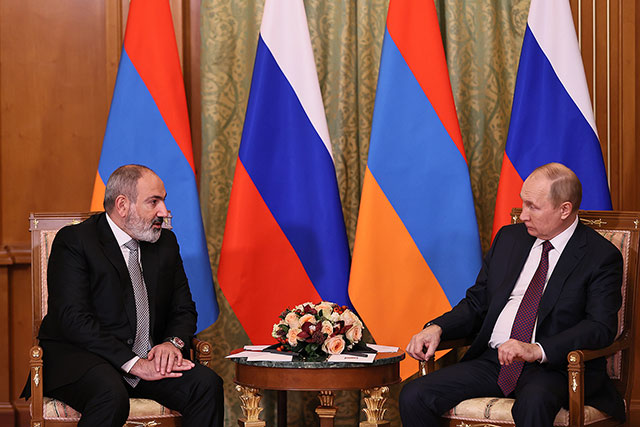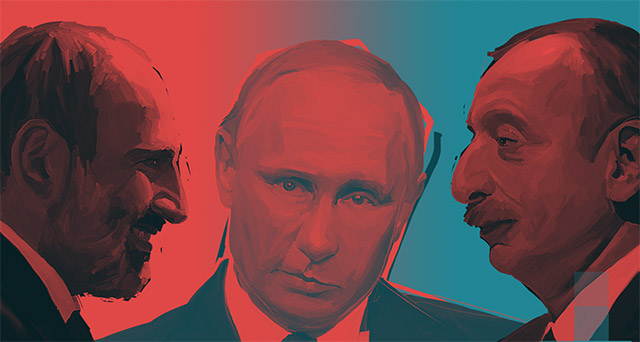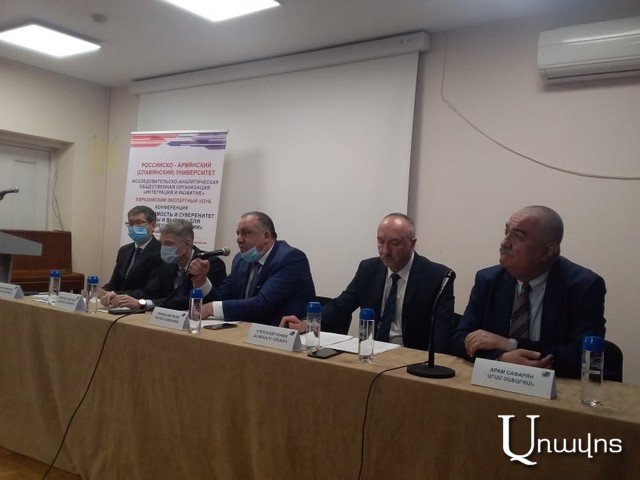“There is no disagreement on the political stage of the Republic of Armenia as to the fact that there ostensibly is a contradiction between the Eurasian integration and the European integration,” political analyst Aram Safaryan expressed this idea during a conversation with www.aravot.am.
He stated that on August 8, when Serzh Sargsyan and Vladimir Putin met in the Kremlin, the Eurasian integration of the Republic of Armenia had been promoted as a result of their conversation. A. Safaryan informed that such discussions had taken place in Yerevan, St. Petersburg, Moscow and Minsk at the level of politicians and experts in the past few months, most of which the analyst participated in.
Knowing about the details of the issue, Mr. Safaryan expressed an idea: “I think that those, who will try to oppose the European integration of the Republic of Armenia to Armenia’s more active participation in the Eurasian process will just aim at confronting and dividing Armenian society into supporters of Europe and Russia, will cause a clash between them, make Armenian society weaker and unprotected to a certain extent. Everyone knows what Armenia expects from the European integration; it is to harmonize the political, social, economic and legal fields of the Republic of Armenia with the European standards. Our society doesn’t have disagreements here. We can expect to participate in a new organization based on our security and geopolitical alliance in the Eurasian integration processes, if our society chooses that in 2013.”
Mr. Safaryan made the following comment on the tendency of many people to compare the Eurasian Union with the Soviet Union: “Its reestablishment is not only impossible, but also meaningless. The multilevel processes that are in progress in the post-Soviet territory aim at consolidating post-Soviet peoples and states, creating conditions for them to live peacefully and breathe freely based on economic interest and a community of worldviews. If the way to do that is found, that megaproject will be successful.”
Read also
We asked A. Safaryan to assess the internal political situation, particularly L. Ter-Petrossian’s and G. Tsarukyan’s not announcing their candidacies. He didn’t wish to comment, explaining that as a political analyst, who had dealt with the issues of the Eurasian integration, he had often been abroad and hadn’t always been able to follow the internal political developments.
Tatev HARUTYUNYAN
























































